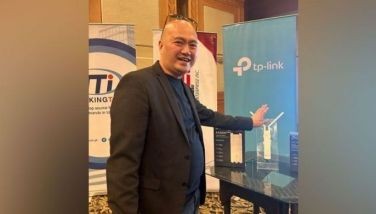Eco-industrial program for the economic zones
October 26, 2005 | 12:00am
The German Technical Cooperation (GTZ) and the United Nations Development Program (UNDP) are generously cooperating with the Philippine Economic Zone Authority (PEZA) to provide technical, financial support in PEZA's effort to arrest further environmental hazards contributed by manufacturing plants located in economic zones.
Through the recently concluded Eco-Industrial Exposition held at the MEZ-1, locators were able to find out partners within the zone to source out their solid waste that can be used or recycled by other companies.
Martina Vahlhaus, program manager for private sector management of the GTZ said this effort of strengthening environmental concern is geared at creating awareness, and also introducing new concept on how to conserve energy through the use of recyclable waste materials from different industries in the zone.
With this program, industries will be segregating wastes either to be used as raw material for their products, or for energy conservation purposes. Both UNDP and GTZ, in support with PEZA will introduce technology innovation out of solid or imitation wastes.
It was noted, that there are several wastes from other manufacturing, or assembly companies that are of much use for other companies, in this way, locators can exchange their wastes, and turn it as raw material.
Mez 1 and 2 are the pilot zones to be applied by this program. Such effort will be replicated in some economic zones across the country, said PEZA environmental safety group officer-in-charge Tonilyn Lim.
In February 2004, PEZA implemented a project called "Developing a Management Approach for Eco-Industrial Development [EID] in Philippine Economic Zones", support by GTZ and UNDP.
The goal was to enhance not only the economic but also the environmental performance of economic zones in the Philippines. MEZ was chosen as the pilot area for the project.
Under the project, a baseline study was conducted to identify the wastes emitted by firms in the economic zone and the companies producing them.
Vahlhaus stressed that taking care of the environment would help ensure constant development of a country's economy.
As a culminating activity, Peza held a two-day eco-industrial expo on environmental management services at Mez 1 last October 20, 2005.
Companies were encouraged to bring their industrial wastes, like papers, boxes, electronic equipment, light bulbs, used lead acid batteries, styropor, tires, juice packs and used oil to be collected by participating recycling and treatment firms.
Environmental management seminars on pollution control, mandatory environmental insurance coverage and the Clean Water Act and its implementing rules and regulations were highlighted during the event.
Through the recently concluded Eco-Industrial Exposition held at the MEZ-1, locators were able to find out partners within the zone to source out their solid waste that can be used or recycled by other companies.
Martina Vahlhaus, program manager for private sector management of the GTZ said this effort of strengthening environmental concern is geared at creating awareness, and also introducing new concept on how to conserve energy through the use of recyclable waste materials from different industries in the zone.
With this program, industries will be segregating wastes either to be used as raw material for their products, or for energy conservation purposes. Both UNDP and GTZ, in support with PEZA will introduce technology innovation out of solid or imitation wastes.
It was noted, that there are several wastes from other manufacturing, or assembly companies that are of much use for other companies, in this way, locators can exchange their wastes, and turn it as raw material.
Mez 1 and 2 are the pilot zones to be applied by this program. Such effort will be replicated in some economic zones across the country, said PEZA environmental safety group officer-in-charge Tonilyn Lim.
In February 2004, PEZA implemented a project called "Developing a Management Approach for Eco-Industrial Development [EID] in Philippine Economic Zones", support by GTZ and UNDP.
The goal was to enhance not only the economic but also the environmental performance of economic zones in the Philippines. MEZ was chosen as the pilot area for the project.
Under the project, a baseline study was conducted to identify the wastes emitted by firms in the economic zone and the companies producing them.
Vahlhaus stressed that taking care of the environment would help ensure constant development of a country's economy.
As a culminating activity, Peza held a two-day eco-industrial expo on environmental management services at Mez 1 last October 20, 2005.
Companies were encouraged to bring their industrial wastes, like papers, boxes, electronic equipment, light bulbs, used lead acid batteries, styropor, tires, juice packs and used oil to be collected by participating recycling and treatment firms.
Environmental management seminars on pollution control, mandatory environmental insurance coverage and the Clean Water Act and its implementing rules and regulations were highlighted during the event.
BrandSpace Articles
<
>
- Latest
- Trending
Trending
Latest
Trending
Latest
Recommended



















